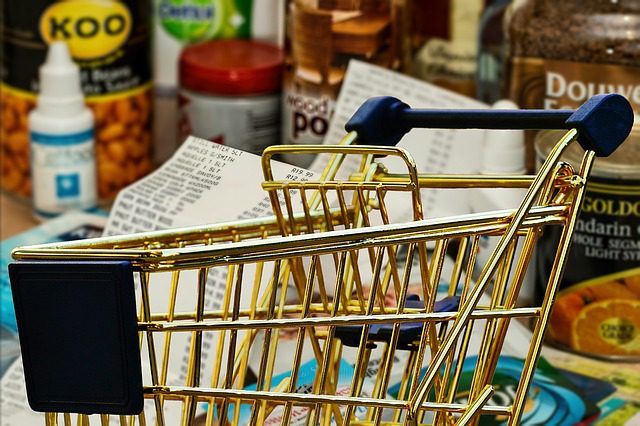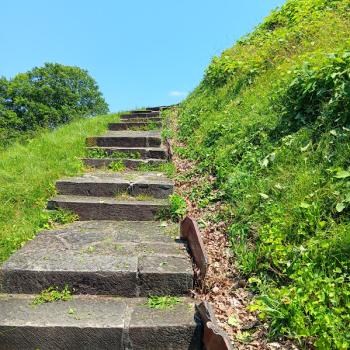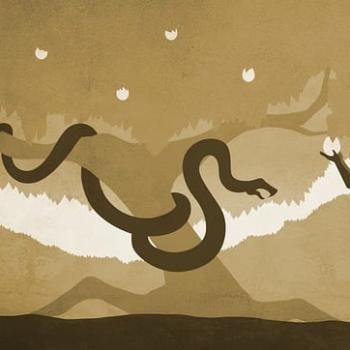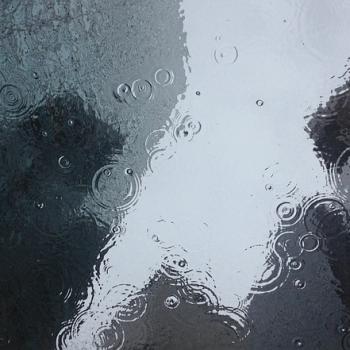
I took Rosie on a shopping expedition.
She spent most of the bus trip chattering me about her television shows: which characters were heroes and villains, what silly puns had been made, what fun facts she had learned. “Did you know that pigeons give milk? Do you know why the prairies have grown rare? Did you know that orangutans are endangered?”
“Yes, they’re endangered,” I said, slightly frantic. I’ve been listening to synopses of the Kratt Brothers’ shows for a solid week now. “That’s ecology! You’re learning about ecology. Ecology is all about our environment, and how humans change the environment. The environment is always changing, but it’s best that we don’t change it too much. After all, if the environment dies, so do we. We only have one planet.”
“I know,” said Rosie.
I was encouraged that I’d stopped the faucet of facts, so I went on. “The bus, for example. We take it because we don’t have a car yet, but when we do get a car we’ll still use the bus often, because the bus is better for the environment. We’ll take the car for large shopping trips like this one, and we’ll give people rides when we can to help them, but the bus will be for other errands.”
And then Rosie realized that I was lecturing, and started on with her facts about animals again.
I had been about to tell her that “ecology” comes from the Greek word “oikos,” which means “family,” “property” or “house.” Your oikos is the place you live, the family you belong to, the household over which you have concern. An oikos not just a nuclear family but everyone living in the house with you, and the grounds around the house besides: everything that is yours to attend to. Everything over which you have stewardship, is your oikos.
The actual definition of ecology, rather than the slapdash one I gave Rose at the spur of the moment, is “the branch of biology that deals with the relations of organisms to one another and to their physical surroundings.” Not just the study of people and how we violate the environment, but living things in general and how they exist in their oikos. Me and my house, you and your house, the pigeon and her nest, the orangutan and the jungle, the philodendron and his pot on the windowsill, the plankton and the Pacific.
My oikos, at the moment, is the rickety old rental house in the notorious LaBelle neighborhood, in Steubenville, in Eastern Ohio, in Northern Appalachia, in the United States, on Earth. The household for whom I have concern comprises Rosie and Michael; the pigeons who nest in my gutter; the stray cats who take shelter under my porch; the children who run through the neighborhood and chase their kick balls into the street; the neighbors I get along with and those I barely tolerate; the people I ride the bus with; the people I talk to online– and, if you go out far enough, my oikos covers the whole world. A human is a creature so chaotic, the scrapes they get into can end up influencing the whole world– so, the whole world is my oikos, the home over which I have stewardship. My ecology is to be mindful of how I impact the entire world with the things I say and do.
Right now, I often feel that there is little I can do to improve my oikos.
I take the bus. I vote. I pack my groceries into cloth bags. I don’t poison insects or weeds. None of this will make too much of a difference to the entire world; it might not make a difference at all. I’m well aware that all the effort imaginable may already be too late.
If I were rich and had boundless energy I would buy and re-forest vast swaths of land, and invest in solar panels. And that’s just my daydream about the natural environment around me. Then there’s everything else I’d like to do for my community but can’t– the derelict houses I’d like to buy and renovate for the homeless, if I were rich; the justice I’d like to bring about for abuse victims in the Church, if I were the Pope; the vegetable garden I’d plant, if I lived on a double lot; the bread and cakes I’d bake for The Friendship Room, if I weren’t allergic to wheat gluten.
If I were rich and had boundless energy, I might even be able to go shopping at someplace more worthy of money than Wal Mart.
Rosie and I selected a cart; I let her steer it until she ran into a display of watermelons.
“Say ‘excuse me,'” I reminded her.
We combed the grocery section. “Pick a treat for the Friendship Room pantry while I look for orange juice,” I told Rosie, parking her in front of a display of garish summer-themed Little Debbies. Rosie can’t eat Little Debbies because she shares my allergies, so she selects them for others based on color. She chose the brightest one, some kind of pink and green allegedly watermelon-flavored treat.
We went through the cereal aisle and bought Kix, which are allergy-safe. I grabbed a package of ready-made oatmeal cups that weren’t allergy-safe as well. “These will be good to give to people who don’t have kitchens to cook their own breakfast,” I said.
“I thought the Friendship Room was for people who don’t have HOUSES,” countered Rose.
“Some of their guests don’t have houses and some have houses but not working kitchens. Some have kitchens but they can’t afford food to cook every week of the month. So we try to get some ready-made foods for people without houses, and some foods for people who can cook. A couple of times when we were much poorer, we couldn’t afford to eat after the EBT card ran out, and the Friendship Room brought us groceries. One year, they’re the ones who brought your Christmas presents, but we told you it was Santa.”
Rosie’s face lit up. “They helped us and now we help them?”
“That’s what a community is: people getting together and helping whoever needs help. That’s what humans are supposed to do. We’re supposed to work together to help each other solve our problems.”
We bought gluten-free cookies and crackers. We found canned gluten-free soup, which is a luxury.
“Pick a canned meal for the Friendship Room,” I said. “If you could eat them, which of these would you try?”
Rose picked Spaghetti-O’s, because of the cartoon mascot on the label.
We went on that way, down the aisles– groceries for us and an offering for a hungry neighbor here and there. Then we checked out; I scanned and Rosie filled the bags, cans on the bottom and delicate things on top, according to my instruction.
There was a man collecting donations for veterans at the bus stop. I let Rosie give him a handful of change, and he gave her a button fashioned to look like a military badge of some sort. I gave her a short lecture on government budgeting and why we have to care for veterans instead of throwing more and more money at new wars.
We were both too tired to talk on the way home.
I can do so little to change my oikos.
But I can make sure that the people I bring into it, know what their responsibility is.
(image via Pixabay)













